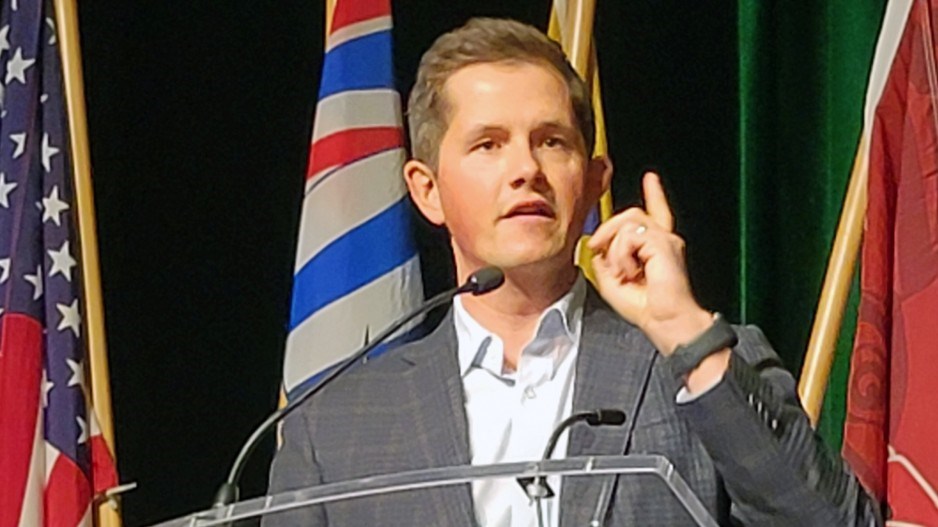Permacrisis was the word of the year for 2022, according to the Collins Dictionary, and public opinion researcher David Coletto says Canadians had legitimate reasons to feel they were never far away from the next calamity to disrupt their lives.
Hence, the meaning of the word – an extended period of instability and insecurity.
After two years of a global pandemic, just when it appeared they might be light at the end of the tunnel, inflation began to spin out of control, raising the cost of everything, including interest rates, which left people struggling to make ends meet.
As Coletto highlighted to delegates at the BC Council of Forest Industry convention Thursday morning at Prince George Civic and Conference Centre, the top five concerns for Canadians are the cost of living (72 per cent), healthcare (51 per cent) , the economy (44 per cent), housing affordability and accessibility (41 per cent nationally, 60 per cent in B.C.) and climate change/the environment (26 per cent).
Also on that list were crime and public safety (16 per cent), the threats posed by China and Russia (10 per cent), lack of freedom on Canada (10 per cent), Indigenous reconciliation (eight per cent) and the Russian invasion of Ukraine (six per cent).
“We’re living in what The Economist described in 2021 as the shortage economy,” said Coletto, the CEO and founding partner of Ottawa-based Abacus Data.
“I don’t look back and say this is the worst it’s ever been in the world. In fact, I’m somebody who looks at the world through a glass half-full with respect to I’d rather be born today than 50 or 100 years ago, certainly with all the technological change.
“But from a consumer public perspective this is a really difficult period to live in, which means we have higher volatility and unpredictability in how people are going to react to issues from day to day.”
There’s been a societal shift in the developed world back to materialist values and Coletto says the ideals of the ‘70s and ‘80s that put more emphasis on developing relationships and protecting the environment have given way to more survivalist priorities because the things we used to take for granted – keeping a roof over our heads and reliance on a wealthy economy – are no longer guaranteed.
The pandemic that closed workplaces and forced people to work from home gave them more flexibility to complete their work to better suit family schedules and reduced the time spent commuting. As a result, an Abacus poll showed 51 per cent of men and 49 per cent of women respondents believe the pandemic brought positive change to their work life.
“It’s harder in natural resources and other frontline work, but there’s a new expectation that’s moved from something people dreamed about,” said Coletto. “The idea that I could spend two weeks working in Spain, which I did earlier this year, wasn’t even a possibility - and I owned my company – because my clients and team members would never have accepted it. Well now that’s changed and I have that flexibility and freedom.”
Coletto also found in a poll of British Columbians their impression of foresters and forestry shows there’s room for improvement. Just 17 per cent of respondents had a very favourable opinion of the industry, while the bulk of people (59 per cent) held a somewhat favourable impression, 19 per cent were somewhat unfavourable and five per cent were very unfavourable.




